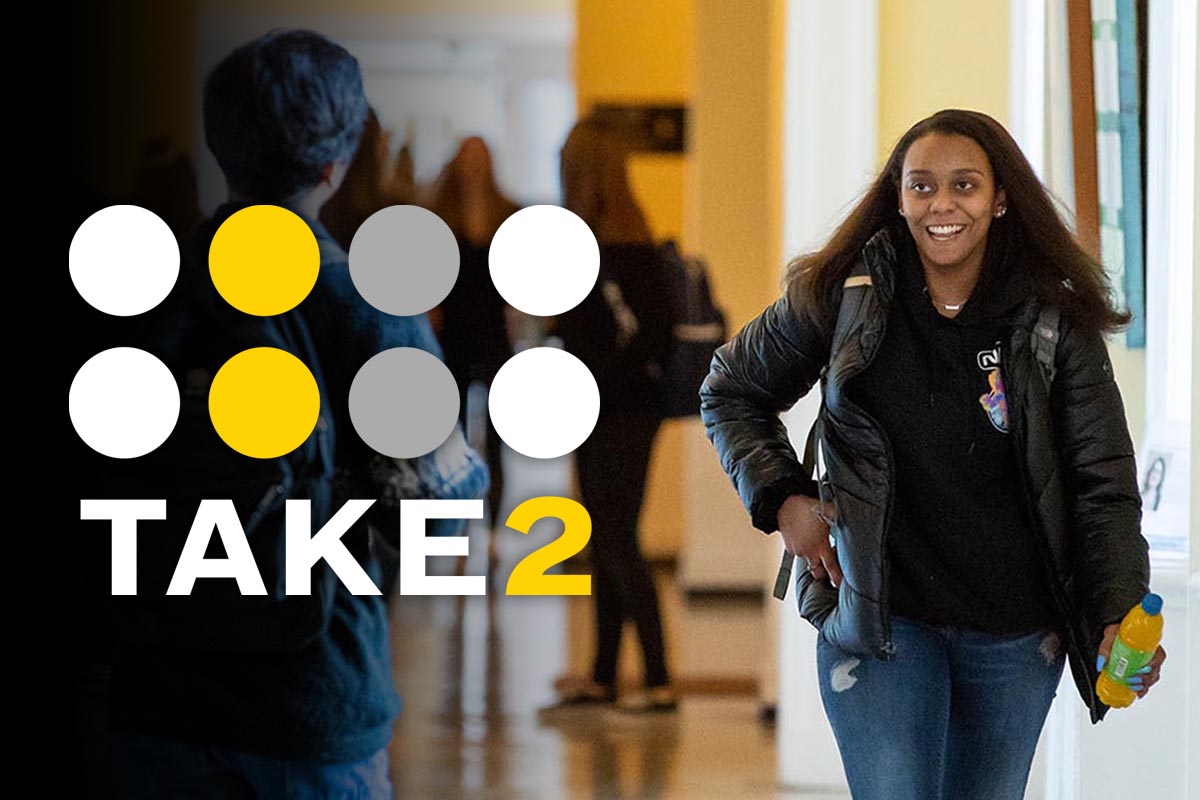Davis contributes coding skills to ongoing Alzheimer’s patient monitoring research

Physics professor Katrin Schenk and Emad Davis ’19 work to develop their web application that helps caregivers monitor Alzheimer’s patients
When Emad Davis ’19 considered transferring to Randolph a few years ago, he was intrigued by physics professor Katrin Schenk’s ongoing work developing monitoring devices for Alzheimer’s patients and their caregivers. Now, he’s leading the project and using his coding and software programming skills as part of Summer Research.
“My best friend’s father has Parkinson’s and is developing dementia, so when I learned about Dr. Schenk’s research, I thought it was really cool,” Davis said. “I was also interested because I often find that we have the hardware in technology to support a healthy lifestyle, but the software is all too often lacking or non-existent.”
This summer, Davis is creating a prototype of a web application that would be accessible via computer, iPad, iPhone, and Android devices. Similar to a Fitbit, patients wear the tracking device around the wrist, and it sends vital signs and other important data to their caregivers in real time. Davis’s goal is to make the software as simple and user-friendly as possible, especially for those who are less technologically savvy.
“It’ll tell them if the patient has been walking or hasn’t been active enough and the times they wake up and go to sleep,” Davis said. “It also has a GPS component to show where they are and where they’ve been.”
Schenk said research has shown that staying active is key for Alzheimer’s patients, and the data provided by this device proves it.
“The idea is that the more you get an Alzheimer’s patient out of the house, the better it is for them,” Schenk said. “Some are rapidly losing their cognitive and social skills, and if you take them out they actually have to use some of those abilities. It’s been shown that this thing called “life space,” which is how far out and how often they get away from their home, is really highly correlated with their mortality and overall health.”
A physics major, Davis has enjoyed the opportunity to try something new and further develop his skills.
“What we’re doing is developing a great idea, and it’s something no one has ever really done before,” Davis said.
Tags: Alzheimer's, coding, Emad Davis, Katrin Schenk, physics, student faculty research, summer research, Summer Research 2018
